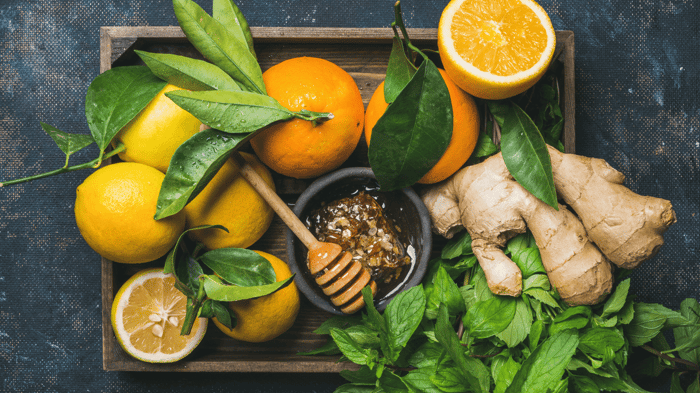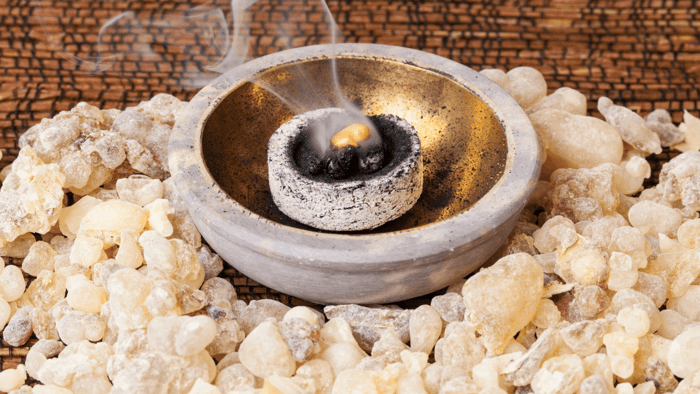By Hannah Kohut
Keep reading below for my own personal experience with bloated stomach pain, and how I pinpointed the cause.

Just about all of us have been there -- you wake up one morning and the jeans you wore yesterday won’t even button. Surely you didn’t gain that much weight overnight!
The cause is likely a bloated stomach. A bloated stomach happens when your gastrointestinal tract (including your stomach) fills with gas and acid, and it can get quite uncomfortable. You may feel tightness, swelling, and hardening in your abdomen. Other symptoms are excessive flatulence and gurgling in your stomach. So what can you do about it? Read on to learn how to get rid of a bloated stomach!
What Causes Bloating in the Stomach?
There are many things that can cause stomach pain and bloating, and a lot of them can come from your diet. Some reasons for a bloated stomach are obvious, like overeating, but you could also be sensitive to certain foods. Once you know the most common triggers for stomach bloating, you can try to avoid them as much as possible.
Foods That Can Cause Stomach Bloating

There’s almost nothing more heartbreaking than learning your favorite foods may be causing your painful stomach bloating! Don’t worry -- you may not need to cut them from your life completely. Start by tapering back on these common stomach bloating culprits, and perhaps by process of elimination, you can better learn which foods to avoid, and which ones you can still enjoy in moderation.
- Carbonated beverages
- Lactose (dairy products)
- Spicy foods
- Fructose (a sugar that’s more difficult on your digestive system)
- Artificial sweeteners
- Salt
- Greasy, fried food
- Alcohol
Of course, having two or more of these foods in one sitting could be a recipe for discomfort. If you are having a spicy meal, lay off the soda. Try not to double-up on the causes for your stomach bloating.
It’s also possible that the healthy vegetables on your plate are causing your discomfort (we just can’t win, can we?). Some vegetables contain a carbohydrate that can cause gas and acid buildup during digestion. They include asparagus, garlic, cauliflower, cabbage, kale, brussel sprouts, and broccoli. However, the health benefits of these nutrient-dense vegetables can far outweigh their negatives, so try cutting back instead of eliminating them from your diet. Learn over time which vegetables are causing your discomfort and scale back accordingly.
Bad Habits That Can Cause Stomach Bloating

Maybe you’re crunched for time during lunch and chow down that burger a little faster than you should have. We all have bad eating habits from time to time, and some of them are prime triggers for a bloated stomach. They can include:
- Eating too fast
- Having a heavy meal before bedtime
- Salting/seasoning your food before tasting it first (it might not need anything!)
- Not drinking enough water (water is essential to moving food through your digestive system)
- Eating too many processed foods (many are loaded with carbs, sugars, and sodium)
- Chewing gum (you’re inviting extra air and gas into your body)
- Grabbing fast food instead of packing a healthy lunch
Medical Conditions Can Cause Stomach Bloating

A bloated stomach can also indicate an underlying medical condition, so don’t ignore the symptoms or brush them off with “I ate something that didn’t agree with me.” If the pain and discomfort are persistent and don’t get better over time, you may need to seek medical attention for what could be a health condition. Symptoms and potential underlying issues could include:
- Constipation
- Water retention (outside of what is normal during your period)
- Heartburn
- Celiac disease (intolerance to gluten from foods such as breads and pastas)
- Irritable bowel syndrome
- Inflammatory bowel disease (including Crohn’s)
- Mental health issues, such as excessive stress
If left untreated, some of these conditions could become serious and lead to a host of other health problems, so don’t ignore persistent stomach bloating. Make an appointment with your healthcare provider to address your ongoing symptoms.
Probiotics Can Help a Bloated Stomach

The question now is how to get rid of a bloated stomach. In addition to lifestyle and food changes, you can also start taking a daily probiotic supplement to help with your digestion. Probiotics are bacteria that are good for you. Your digestive system has a host of different bacteria, some good, some bad. Probiotics help boost your good bacteria to keep you healthy. However, not all probiotics are created equal. For stomach bloating, look for probiotics with these strains, as they are commonly recommended for stomach bloating and digestive issues:
- Lactobacillus acidophilus
- Lactobacillus plantarum
- Bifidobacterium lactis
- Bifidobacterium infantis
- Bacillus Coagulans
- Saccharomyces cerevisiae
While a supplement capsule is an easy way to pack in your probiotics, you can also find probiotics in foods such as yogurts, sauerkraut, kimchi, kombucha, and buttermilk.
My Personal Experience -- Process of Elimination
When I was in college, I had a horrible diet. I ate so much processed junk food, and I started noticing my stomach and esophagus were tight and painful more often than not. Of course I couldn’t identify any one food that caused it, because I literally would eat anything. I lived in New Orleans, LA at the time, the land of infinite food! How could I say no to any of it?
One night my esophagus was swollen so tight I could barely swallow water, and I had so much built-up gas and acid in my stomach I felt I needed to throw up, but I couldn’t because of my swollen esophagus.
A friend at the time took me over to his mother’s home to see if she could figure out what was wrong (every Louisiana mama has some tricks up her sleeve!). She took one look at me and said “I know what will help” and gave me an Alka Seltzer. Yes, just a plain old Alka Seltzer, and within minutes, I cannot put into words how relieved I felt! My goodness, it was like I was alive again, but then she asked me “What did you eat today?”
I had to go down the embarrassing list -- macaroni and cheese, a big bowl of red beans and rice with andouille (spicy) sausage, probably a half a bag of chocolate candy, and of course, ice cream.
The next day I tried eating each of those three foods one at a time, spaced over several hours. Surely one of them would trigger the pain again. I started my morning with ice cream and chocolate (again, I did not make wise food decisions), with no symptoms (whew!). I had macaroni and cheese for lunch, also with no problems. For dinner I heated up the leftover red beans and rice I had the night before, and sure enough, within an hour, the intense pain returned.
I knew that one of the ingredients in that dish was causing my pain. After a few days of eating each ingredient on its own (the rice, the beans, the sausage, the yellow onion, the green onion, the garlic, the seasoning blend), I found the culprit --- the green onions.
Those tiny little finely sliced green onions were giving me the intense pain in my stomach and esophagus. In my elimination test I only had about a teaspoon of them finely sliced, and the pain and acid/gas buildup started within minutes. To this day, when I eat out at restaurants, I make sure there are no green onions on my dish, not even as a garnish. It was a very painful lesson learned (pun absolutely intended), but the simple act of process of elimination helped me identify a major trigger for my stomach bloating and discomfort, and likely saved me a trip to the doctor’s office.




